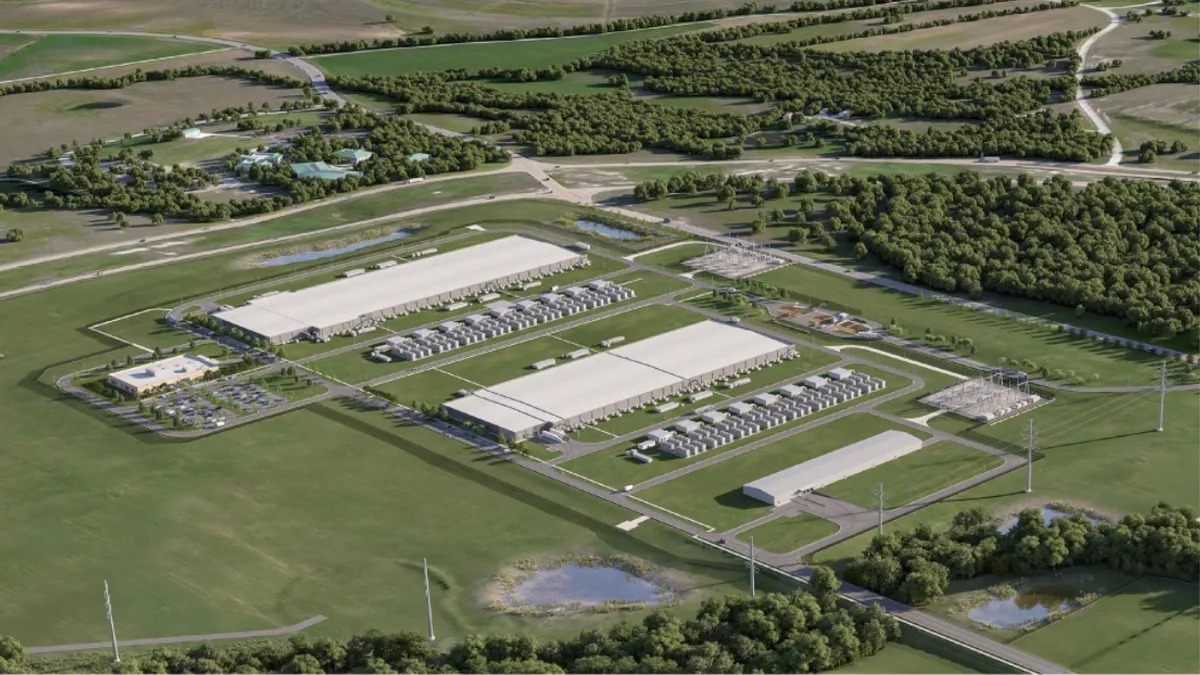Dive Brief:
- Shovels have hit the ground once again as Kansas City, Missouri-based general contractor JE Dunn resumed construction on a $800 million Meta data center project in Temple, Texas. The project hit pause in December 2022 when Meta said it was changing the design of the complex.
- Now, the design has evolved and is specifically tailored to support the next generation of artificial intelligence systems, according to Meta. The firm believes the new design will be 31% less expensive and take half the time to build over the previous approach, according to industry publication Datacenter Dynamics.
- Along with JE Dunn, other construction companies working on the project include Rosendin Electric, Brandt Cos., Peabody General Contractors, Alamo Structural Steel, Perry and Perry Builders, CentiMark Corp. and BakerTriangle, Meta said. The tech firm anticipates that over 1,200 construction workers will be on site at the peak of construction.
Dive Insight:
Given concerns earlier this year around job cuts in the tech sector, the resumption of the Temple data center project serves as a confirmation of the optimism expressed by construction sources who remained bullish on data center construction.
Meta, along with other U.S.-based tech companies, announced widespread job cuts in November 2022. That bleeding in the tech sector raised concern that construction activity could slow for data center projects from tech giants like Meta, Twitter and Amazon.
But those concerns have been largely unfounded. Even during the peak of that tech industry layoff period, data center construction activity remained robust.
The 900,000-square-foot facility is part of Meta’s goal to expand its data center infrastructure in 2022. For example, the tech giant also poured $800 million into a facility in Kansas City, Missouri, as well as an additional $800 million into a Kuna, Idaho, data center last year.
Those projects pushed Meta’s total investment in U.S. data center construction and operations past $16 billion, according to the company.
Project teams originally pegged the completion date for 2025. Meta now expects the project to complete in 2026, according to a statement shared with Construction Dive.














